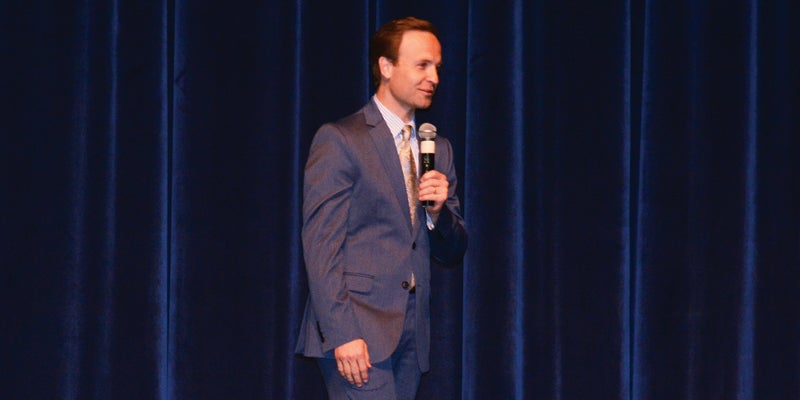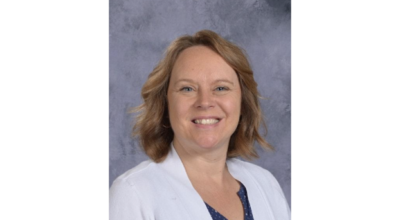Lt. Governor Calley visits Edwardsburg Middle School
Published 10:36 am Friday, May 27, 2016
Edwardsburg Middle School students were treated to a visit by Michigan Lt. Governor Brian Calley Monday.
Calley, who is the youngest Lt. governor in the country, is a former student of Edwardsburg teacher Jennifer Wyant.
Wyant taught Calley at Iona High School. He would go on to receive degrees from Michigan State University, Grand Valley State University and Harvard University.
Calley spoke to the Edwardsburg seventh graders about the Flint water crisis and one of his personal passions — mental health.
Calley has a daughter with autism and he has been an outspoken advocate for autism awareness.
In talking about the Flint water crisis, Calley said that he has devoted a majority of his schedule to dealing with the situation. He also noted that he had not spent much time in that part of the state prior to the crisis.
“It gave me an opportunity to jump in and be a part of the solution there without having the baggage from anything in the past,” he said. “The main goal is to try and bring about longer-term solutions and solve issues that have existed in that city for a long time.”
Calley said that because the infrastructure in Flint is so old, there is no quick-fix option. He noted that the city used to receive its water from Detroit and that it was treated correctly.
Once the decision was made to stop getting their water from Detroit, the problems began. He did not want to point any fingers at anyone, saying he would much rather tackle the problem and come up with the best way to fix it, which will include replacing the pipes that transport the water.
“We have to do so in a way that is sustainable over time,” Calley said. “The state will not always be there. And when the state pulls out, there will be sustainable systems to deal with the longer-term needs of the community.”
Calley also said that Flint has an extremely high poverty rate and he wants to do more than just fix the water issues.
“I see this as an opportunity, not just to deal with the water crisis itself, but to break some of the negative cycles that have existed in that city for so long,” he said.
Calley said had it not been for the Flint water crisis, he would have talked to the students about a much different topic. That being mental health.
He asked the students in the performing arts center to think of something they struggle with. He then asked them to think about how they would feel if they were constantly reminded about their struggles.
He admitted that he struggled in English.
“I want you to imagine a world where the thing that you struggle with is the first thing that everybody knows about you,” he said. “Can you imagine if your whole life, all people talked about or saw about you or understood about you where the things you struggled with the most? Do you think you would get a very fair shake at life if that was the case? Welcome to the life of a person with a disability.”
Calley told the students that the world defines them according to their disability.
“People don’t think about their strengths, they are thinking about their disability,” he said. “What I am trying to do is create a world where we extend the same courtesy to the people with disabilities that we do to every other person.”
Calley wrapped up his visit by debating topics with the students.







